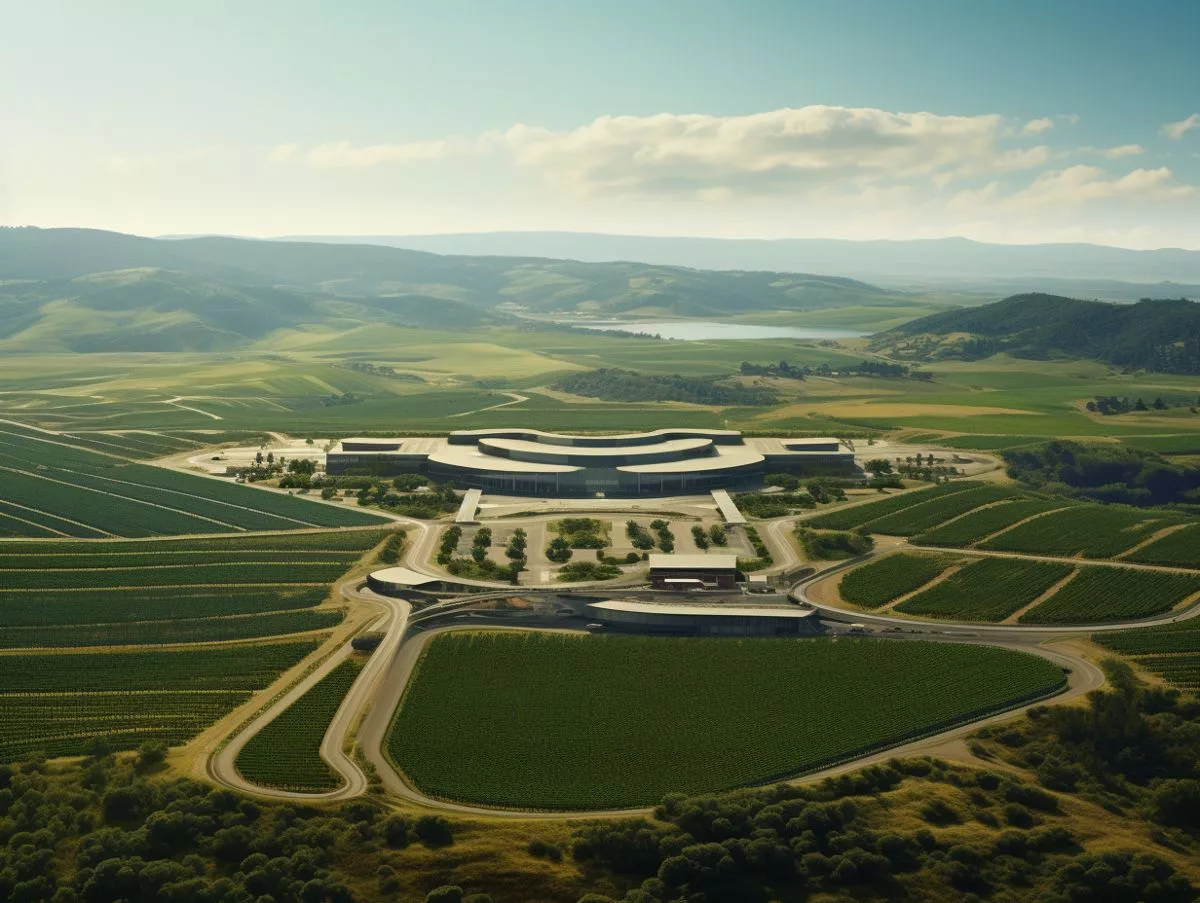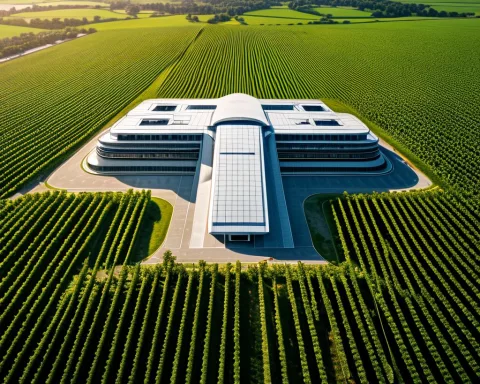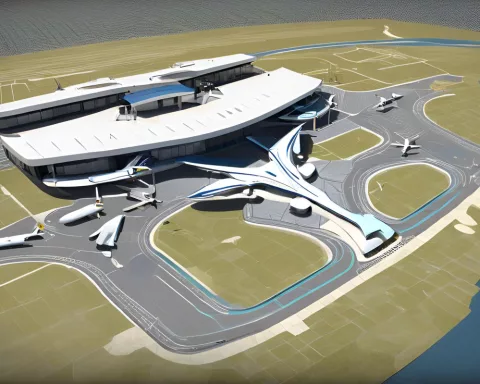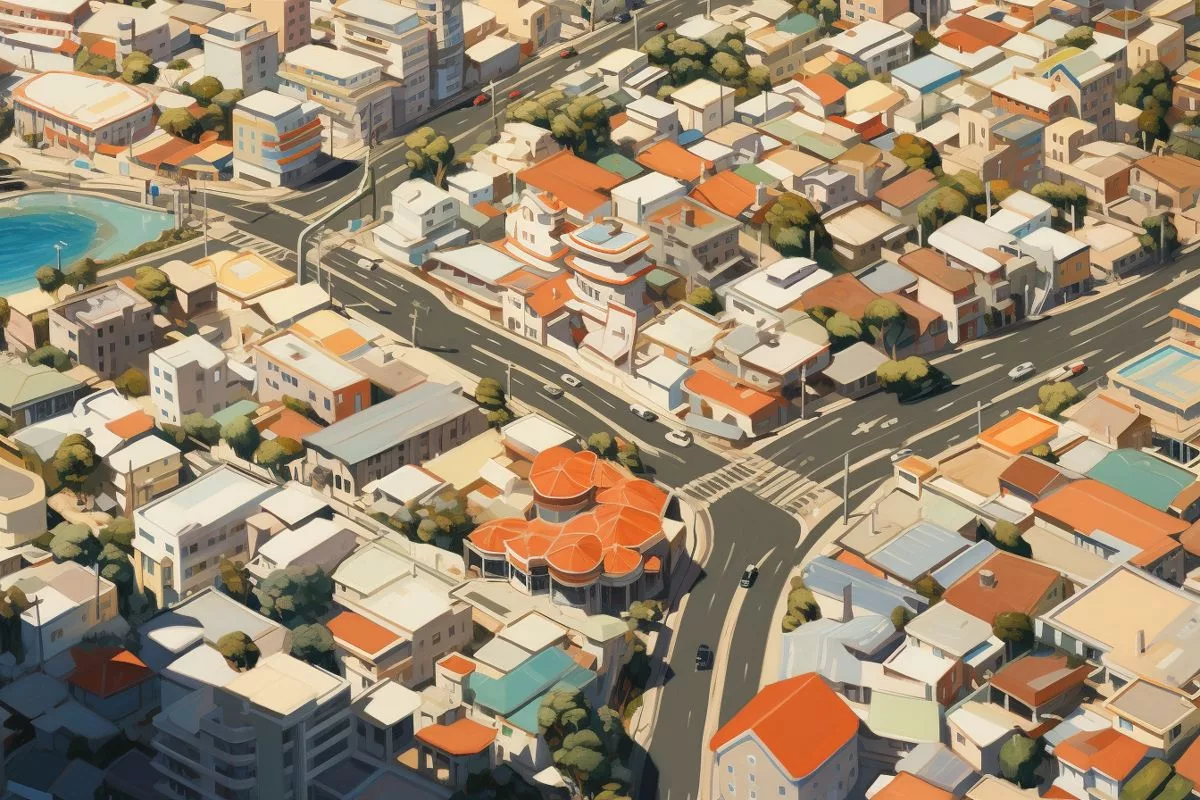Cape Winelands Airport is undergoing a transformation that marries the region’s rich viticulture with modern conveniences, crafting an unparalleled travel experience. The envisioned terminal precinct will boast an outdoor amphitheatre, an aviation museum, and ample parking space. The airport will provide a plethora of modern amenities and services, large lounges, dining establishments, and boutique shopping outlets, all while placing high importance on sustainability with renewable energy sources and innovative water recycling systems.
The New Era of Cape Winelands Airport
Discover the transformation of Cape Winelands Airport, as it embarks on an ambitious expansion plan that marries the region’s rich viticulture with modern conveniences, crafting an unparalleled travel experience. The envisioned terminal precinct will be a haven of vineyards, boasting an outdoor amphitheatre, an aviation museum, and ample parking space. The airport will provide a plethora of modern amenities and services, efficient check-in counters, large lounges, dining establishments, and boutique shopping outlets. Sustainability is a key focus of this expansion scheme, offering renewable energy sources and innovative water recycling systems to conserve and purify water.
The New Era of Cape Winelands Airport
Located in the picturesque Northern District of Durbanville, nestled amidst the stunning vista of Cape Winelands, the Cape Winelands Airport is embarking on an ambitious expansion plan. This historic airport, operational since 1943, is one of the oldest airfields in the region, primarily serving the General Aviation community. Its strategic position is an invaluable asset, poised to stimulate the aviation sector and invigorate the local economy.
The expansion of the airport is driven by a mélange of artistic beauty, practicality, and sustainability. The ideology behind this is both simple and profound – the holiday experience should begin at the airport, rather than just at the destination. In line with this philosophy, the airport will undergo a transformation that marries the region’s rich viticulture with modern conveniences, thereby crafting an unparalleled travel experience.
The Vision and Layout
The envisioned terminal precinct is to be a haven of vineyards, boasting open spaces that feature a plaza, a hotel, and a conference centre. To further enrich this experience, an outdoor amphitheatre with an impressive capacity of up to 5,000 people, an aviation museum, and ample parking space will be situated within a park-like environment.
The proposed development aims to seamlessly merge nature with architectural aesthetics. A botanical garden housing a diverse range of indigenous fynbos from around the world is planned for the airside area under airport control.
The airport, placing high importance on customer experience, will provide a plethora of modern amenities and services. Efficient check-in counters, furnished with the latest technology, will ensure quick processing. Large lounges, equipped with comfortable, ergonomic seating, will offer a tranquil waiting area. A broad spectrum of dining establishments and boutique shopping outlets will cater to the varied tastes and requirements of all passengers.
Economic Impact and Sustainability
Poised to be a crucial portal to the Cape Winelands, the refurbished airport will offer domestic and international flight options, forging new travel routes. By 2050, projections estimate that it will cater to 2,000,000 international tourists and 3,000,000 domestic travelers annually, effectively doubling the region’s annual passenger traffic from 10 million to 20 million.
The expansion of the airport also forecasts an economic enhancement of the region. It is anticipated to generate jobs and stimulate local businesses and industries, particularly those within logistics clusters.
Sustainability is a key focus of this expansion scheme. The airport plans to be as self-sufficient and off-grid for water and electricity as possible. Renewable energy sources like solar power and chicken manure biogas will be harnessed to power the airport’s facilities and operations. This shift towards self-reliance will not only decrease carbon emissions but also guarantee a steady and uninterrupted energy supply, even during unfavourable weather conditions.
Commitment to Environmental Stewardship
In line with its pledge to environmental conservation, the airport will implement innovative water recycling systems to conserve and purify water for diverse airport needs. Waste management will emphasize recycling and composting to further minimize its environmental footprint.
Over the past three years, meticulous planning and consultations with stakeholders from the wider aviation industry have been undertaken in a spirit of collaboration. This joint endeavour signifies the airport’s commitment to offering world-class services and facilities to passengers, airlines, and partners.
Cape Winelands Airport is set to revolutionize the travel experience, improve operational efficiency, and remain at the cutting-edge of aviation innovation. The end result of years of careful planning and dedication, the airport’s strategic vision promises a fusion of history, culture, modern convenience, and sustainability.
1. What amenities will be available at Cape Winelands Airport after the expansion?
The airport will provide a plethora of modern amenities and services, large lounges, dining establishments, and boutique shopping outlets, all while placing high importance on sustainability with renewable energy sources and innovative water recycling systems.
2. What is the focus of the expansion scheme?
The expansion scheme focuses on sustainability, offering renewable energy sources and innovative water recycling systems to conserve and purify water.
3. What is the economic impact of the expansion?
The refurbished airport will offer domestic and international flight options, forging new travel routes. By 2050, it is projected to cater to 2,000,000 international tourists and 3,000,000 domestic travelers annually, effectively doubling the region’s annual passenger traffic from 10 million to 20 million. It is anticipated to generate jobs and stimulate local businesses and industries, particularly those within logistics clusters.
4. What is the commitment of Cape Winelands Airport to environmental stewardship?
The airport will implement innovative water recycling systems to conserve and purify water for diverse airport needs. Waste management will emphasize recycling and composting to minimize its environmental footprint.
5. What is the layout of the envisioned terminal precinct?
The envisioned terminal precinct is to be a haven of vineyards, boasting open spaces that feature a plaza, a hotel, and a conference centre. An outdoor amphitheatre with an impressive capacity of up to 5,000 people, an aviation museum, and ample parking space will be situated within a park-like environment.
6. What is the focus of customer experience at Cape Winelands Airport?
Efficient check-in counters, furnished with the latest technology, will ensure quick processing. Large lounges, equipped with comfortable, ergonomic seating, will offer a tranquil waiting area. A broad spectrum of dining establishments and boutique shopping outlets will cater to the varied tastes and requirements of all passengers.












